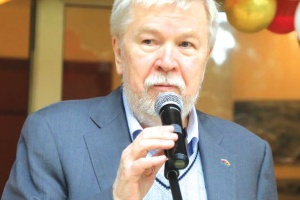As many writers in African countries, Ethiopian writers too face apparently insurmountable dilemmas for engaging in the most peaceful and most beautiful job in the world; to quote the late Colombian author Garcia Marquez’s words.
As in many African countries, writers in Ethiopia are often harassed, ignored, banned, exiled, or condemned to a life of poverty for being the peaceful voices of the voiceless, the disinherited, the impoverished and the oppressed. Some of them have paid even with their lives for criticizing evil and for showing the way to a peaceful and just social order. Many of them are condemned to a life of poverty and died in abhorrent circumstances unworthy of human beings.
The case of Mengistu Lemma, Abe Gubegna and scores of other unknown and less known writers are cases in point. In other words, poverty is one of the greatest challenges writers in Ethiopia face. Ethiopian writers have to enter a ‘pact of non-aggression’ with poverty. That is to say they need to accept their poverty in order to live as true writers.
This should not be interpreted as meaning that writers in Ethiopia need to be poor to write well. Poverty is no blessing. It is a bane rather than a boon. It is true that poverty is a devastating condition that deprives writers as well as people in general of the basic means of their existence. Poverty is humiliating and dehumanizing by its nature. Yet, being a writer in Ethiopia requires one to be highly resilient and unyielding to challenges, including poverty. Writers in Ethiopia should know that they cannot live by the fruit of their labors. Writing is a very difficult job and not a lucrative one.
The book market is poor, publishers are almost non-existent, readers are not interested in books…etc. In a country of more than 1 million people, there is not a single professional book publishing house. This has deprived writers even of the potential of earning a meager income from their works As a result of this, writers in Ethiopia produce books, printed in limited copies and distribute them to retailers some of which are so dishonest that they create all kinds of reasons not to pay royalties while the self-publishing writers are languishing in poverty. Some of the retail traders even go as far as disappearing after collecting the books from writers to be sold on consignment basis. In the final analysis, dishonesty and greed are the hallmarks of most book sellers in Ethiopia.
The losers are of course writers who pay with their blood and sweat and borrow money to publish books by overcoming tremendous odds. Poverty is not the fate of only Ethiopian writers. Nobel prize winner American writer John Steinbeck (The Grapes of Wrath), once said that in America of his time, being a horse keeper is a better bet than being a writer as far as generating income or earning a living. In his collection of essays entitled, “African Absurdities”, exiled Ethiopian writer Hama Tuma says that among the hurdles Ethiopian writers face is the problem of publication. “
It is hard to find publishers and in some African countries like my country Ethiopia where the ruling party owns the main publishing house and is the only one to have the better means of publication and distribution, being published requires a tacit effort to be liked by the regime.”
he says. Ethiopian writers also face pressure from printers, or the owners of the means of book production. Printers are pushing printing costs up now and then for known or unknown reasons. “We are sorry, the cost of paper is going up!” This is their standard answer whenever they are asked why printing costs rise steeply and in short intervals.
The State often claims to build the biggest dam in Africa, promote space science, import the most advanced military technology or, sad to say, the hightech tools used in torturing dissidents. Yet, it turns a blind eye on the need to manufacture plain paper for printing books. And this happens in a country that boasts of having one of the earliest written civilizations in the world. Ethiopian writers suffer from neglect both by the State and also by society.
Government is expected to support writers in many forms but it is not doing its part of the bargain. Most of the classic in world literature were produced by writers who were supported by autocrats or by monarchs. Ethiopian writers in the past enjoyed support from the palace, i.e. the State, in the form of monetary support or the provision of the means of sheer physical survival. This happened at a time when the state was dubbed “reactionary”, “feudalistic” and “backward”.
In actual fact, we can say that the modern State is far more backward than the medieval monarchs as far promoting books and culture is concerned. Nowadays, the modern Ethiopian State not only ignores writers but also puts additional hurdles to make their lives more difficult. It is the modern State that is harassing writers, imprisoning , banishing them and even killing them.
Abe Gubegna’s life and death is the best reflection of the modern State’s attitude towards writers which is based on senseless hatred and enmity. Ethiopian writers are also largely neglected by society. Most Ethiopian societies are not literate or lovers of books or of writers. Poverty has denied them of the opportunities of culture. The so-called educated elites too do not buy and read books regularly.
Most of them rather prefer to show off their degrees, brandishing them as certificates of privileges and not as tools for further reading or knowledge. The level of literacy in Ethiopia has gone down instead of going up. Traditional or archaic attitudes towards anyone engaged in the craft of writing are still tenuous.
The modern State is not only hostile to writers. It is also spreading its hostile attitude towards writers in societies at large through the media it controls. Writers are often regarded as troublemakers, good for nothings, irrelevant entities and what not. In a society where political power and money matter most, the writer cannot enjoy the respect and sense of gratitude their peers enjoy in other societies. Ethiopian writers are often forced into self-censorship, silence, and worse still, exile and sometimes death.
There are a number of excellent Ethiopian writers who are living in exile simply because they could not live and work freely in their home country. Exile is not good for writers as exiled Ethiopian writers often say. But when a vegetative and quiescent life is imposed on them, writers have no choice but leave their country as many dissidents do. Some of them continue to write even in exile but their writings do not reach the home audience for reasons we sited above.
Hama Tuma has something to say on this point. “The exiled writers face the dilemma differently since, more often than not, their works get banned in their homeland and that their primary audience could also be foreign.” He says. The State is prohibiting or discouraging dissenting or critical authors directly or indirectly here at home. It is also prohibiting exiled writers from sending their works to the home audience. Of course this is often done subtly and not openly or brutally as it was the case in the past. The modern State uses modern techniques of silencing writers.
It is telling writers to write freely and whenever they do so it makes it impossible for their works to reach the public as a result of which many authors fall prey to frustration and a sense of uselessness that compounds their material poverty.
The State may be boasting about giving press freedom to writers. Yet, press freedom has already proved useless without material freedom. So many potentially promising writers have perished before delivering their promise simply because they faced some of the devastating challenges described above. Nigerian writer Ben Okri advises African writers to be resilient and unyielding to the dictatorship of the State as well as to the material poverty of their lives.
There may be a limit to resilience but Ethiopian writers have no choice but to persist in doing the most peaceful and most beautiful job in the world, despite the odds. In this connection, it may also be useful here to remember Antonio Gramsci (Prison Notes) who almost summed up the situation writers face in Ethiopia as being one of “Pessimism of the intelligence and optimism of the heart”.
Herald January 13/2019
BY MULUGTA GUDETA





